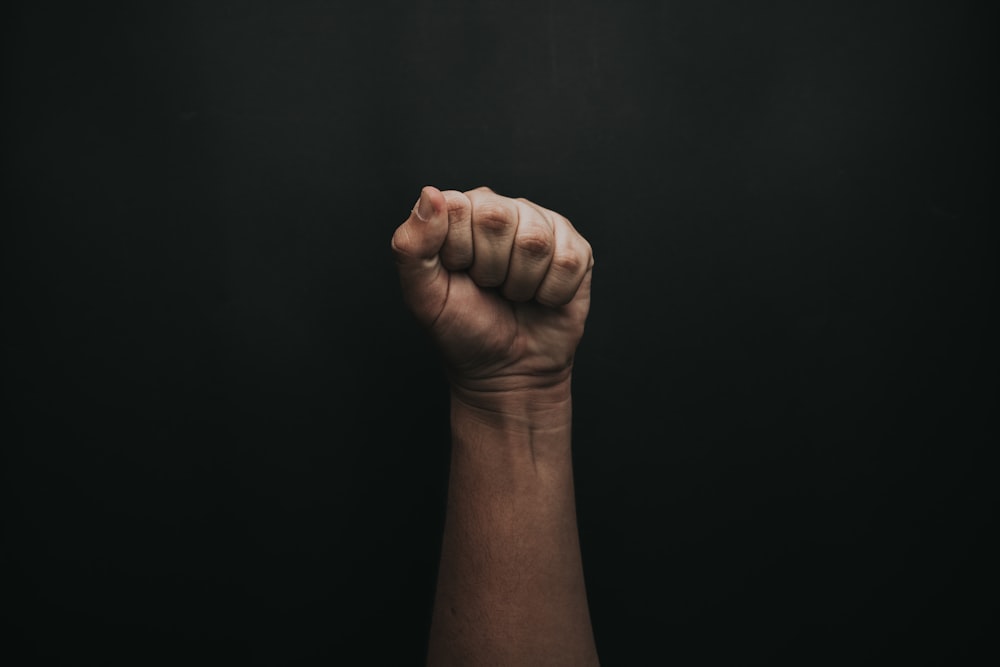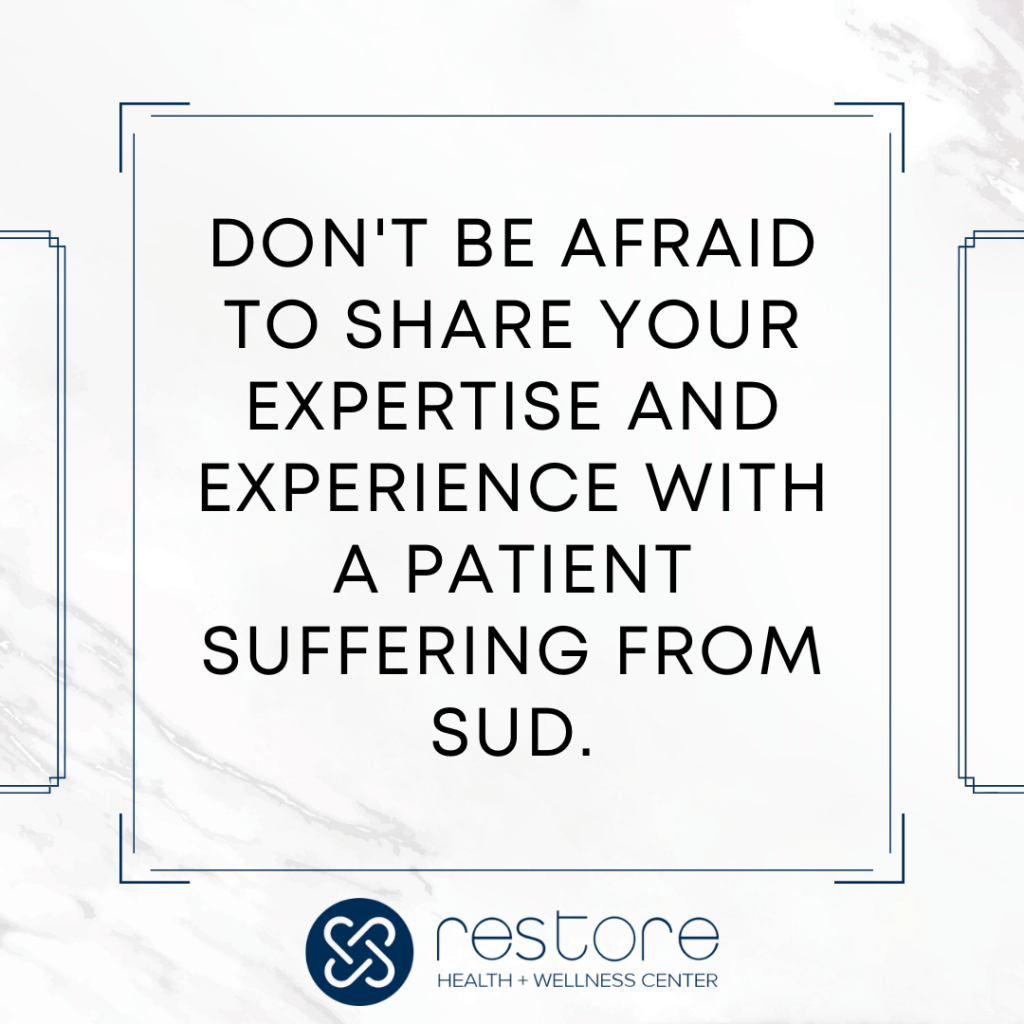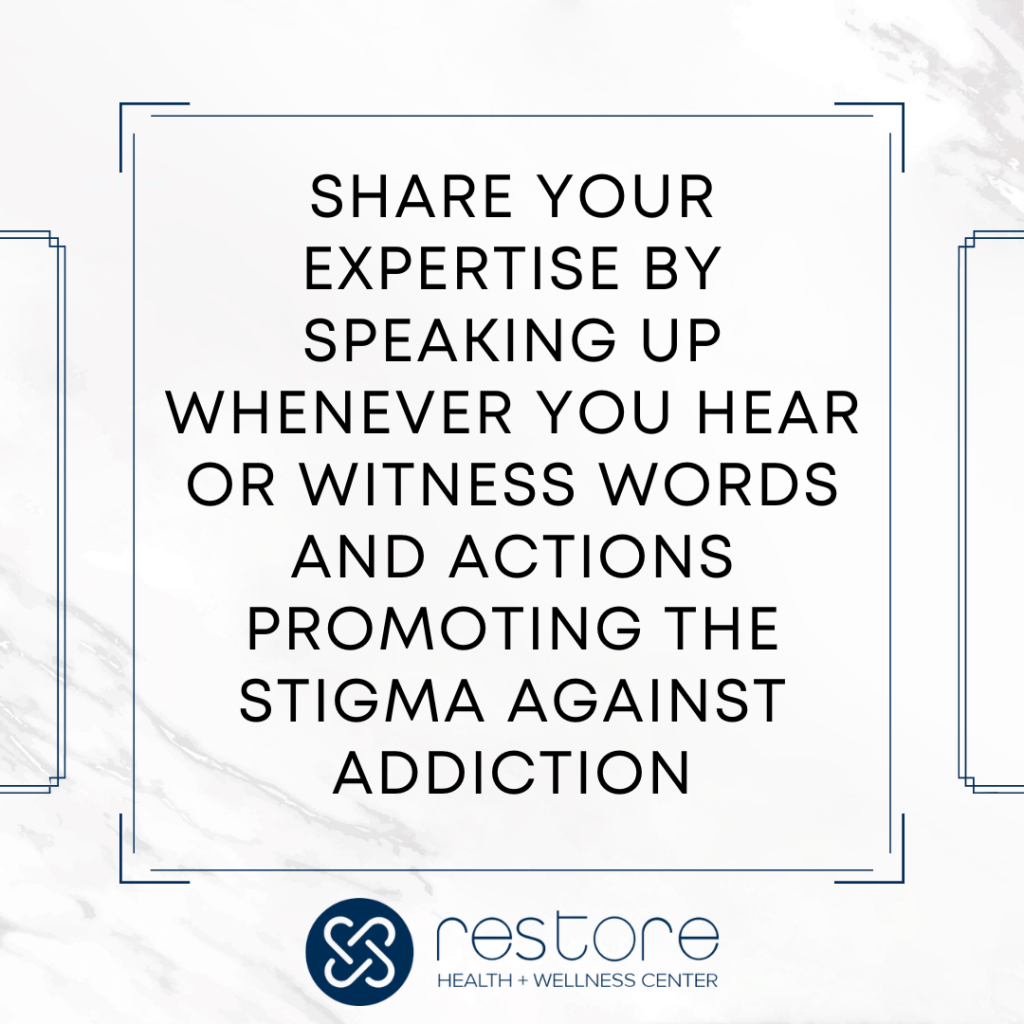The biggest obstacle to overcoming addiction and overdose in the community we serve is stigma. “Stigma” is a Latin and Greek word that originally meant a mark inflicted on another person to suggest disgrace.
Stigma is the belief that someone has something negative about them, such as an addiction or mental illness. People may use disparaging or judgmental terms to refer to addiction or people with substance use disorder.
What Causes The Stigma Of Addiction?
A large body of research demonstrates that the stigma of addiction is persistent, pervasive, and rooted in beliefs that it is a personal choice reflecting a lack of willpower and moral failure. Rates of stigma are extremely high in the general public and within professions whose members interact with people with substance use disorders, including the health care industry.
The stigma on addiction can be seen at all levels in health care settings. Addressing the drug overdose crisis must include actions to reduce stereotypes and discrimination.
Addiction Can Happen To Anyone
According to data from the National Survey on Drug Use and Health, one in seven Americans reports experiencing a substance use disorder. No single driving factor leads to addiction; however, some people use drugs to help cope with stress and trauma or mental health issues. Others might even develop an opioid use disorder after misusing the drugs prescribed by doctors. Nevertheless, over time, using drugs makes it easier to become addicted.

10 Ways You Can Help Overcome The Stigma Against Addiction
1. Become an Expert
Look for expert advice and reliable addiction, treatment, and recovery sources. Research public health studies, community awareness coalitions, policy, news coverage, medical research, and personal testimonies. Recommended sources include the National Behavioral Health Council, American Society of Addiction Medicine, Office of National Drug Control Policy, Substance Abuse and Mental Health Services Administration, and others.
2. Spread the Message
Social media is a simple and powerful tool for spreading awareness. You can use platforms like Facebook and Twitter to connect with others dealing with addiction and recovery services in your community. If you have a personal recovery story, share it with your network if you are comfortable, or try addiction counseling.
3. Be an Advocate
Don’t be afraid to share your expertise and experience with a patient suffering from SUD. Support them by engaging and encouraging them during and after treatment. Doing this can empower the patient and their families to wash away the stigma of shame that forces many to remain in darkness rather than seek treatment and remain in recovery.

4. Share Your Story
If you have a personal recovery story, share it at your comfort level. Today, 23 million Americans are in recovery; no one achieves and thrives alone. Your recovery story can reach and impact those in dire need of treatment in the most powerful way.
5. Get Engaged
Every community has a way of celebrating recovery. Certain organizations hold community marches/walks, picnics, concerts, film screenings, panel discussions, golf tournaments, and other public events to break the stigma of addiction. Restore Center LA is deeply engaged in supporting and hosting events highlighting hope in recovery, including monthly Renewal Days, weekly Alumni Meetings, and special annual celebrations.
6. Banish Your Bias
If you or a loved one have been through treatment and found recovery, you may have unintended biases and inaccurate assumptions contributing to the stigma of addiction. These include judging those still in treatment or those who relapse, ranking addictions based on the drug of choice, and measuring recovery journeys against your path. Remove these thoughts and judgments from your mind and instead focus on empowering those seeking and living in recovery.

7. Welcome Recovery to the Neighborhood
Some who advocate for recovery also enforce the stigma by refusing neighborhood support for the physical location of SUD treatment and recovery services, such as sober living homes near their property. But that support is critical to successfully breaking the stigma. If you or someone you know lives near a treatment center or other recovery support service provider, show your endorsement by making yourself and your neighbors comfortable, supportive, and accepting of their proximity.
8. Support Parity
The Affordable Care Act makes mental health and substance abuse coverage mandatory for all insurance carriers. ACA is still relatively recent, and insurers need education on why adequate, long-term benefits for alcohol and drug treatment are needed. Addiction is a brain disease, and mental illness equals medical illness. The ultimate goal is to ensure all private or public health insurance and managed care policies provide equal coverage for SUD on par with other medical treatments.
9. Promote Policy
According to the Office of National Drug Control Policy, “Treatment and prevention can be half the cost of incarceration. You can’t arrest your way out of the problem.” SUD is a public health crisis that costs Americans more than $450 billion a year, and much of that goes toward the current legal consequences. Increasing calls for legislation and reforms on the local, state, and national levels are designed to pivot from incarceration for SUD-related crimes to treatment services and prevention programs. Explore state questions, ballot initiatives, and candidate platforms during election season to determine where your community and policymakers stand on breaking the stigma.
10. Speak Up
When it comes to the public health crisis of addiction, many of our family members, friends, colleagues, and social networks still have misinformed perceptions and fears about people suffering from SUD. Share your expertise by speaking up whenever you hear or witness words and actions promoting the stigma. Inspire a thoughtful conversation that addresses any misconceptions or fears, sharing that addiction is a treatable brain disease – and that recovery is possible and sustainable.

Help End Stigma
Take these important steps to help reduce stigma:
- Do not define any person by their drug use.
- Be respectful, compassionate, and caring to those who use drugs.
- Educate your friends and family – pass on facts and challenge stereotypes.
- Remember that addiction is a treatable medical condition, not a choice, and deserves care like any other medical condition.
- Be aware of your attitudes and behaviors because they may be influenced by stereotypes, negative stories, and images about people who use drugs.
Recognize That Treatment Works
Professional caregivers can make a big difference in every patient’s life. Many people still can’t help their loved ones battle any substance use disorder, but the most important thing to recognize is that treatment works. These patients can recover and live happy, meaningful lives.
Restore Center LA has addiction counseling if you would like to speak to someone about your current disposition. Give us a call when you are ready to speak with someone about your addiction. Our friendly staff is waiting for you!




